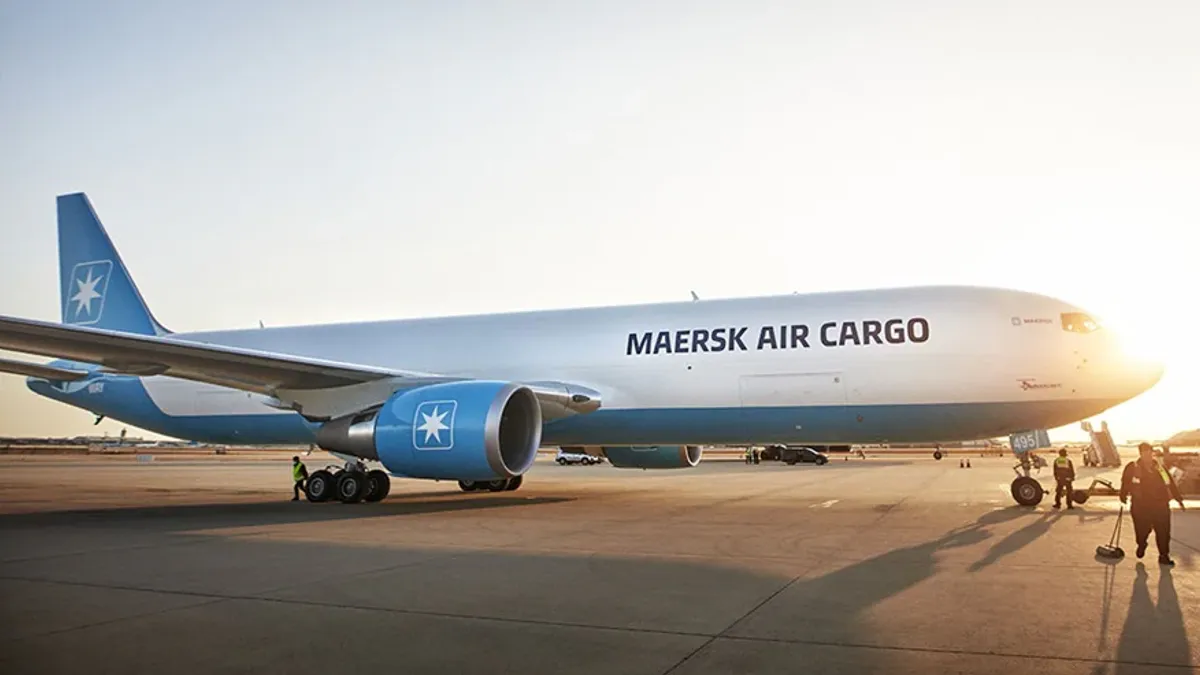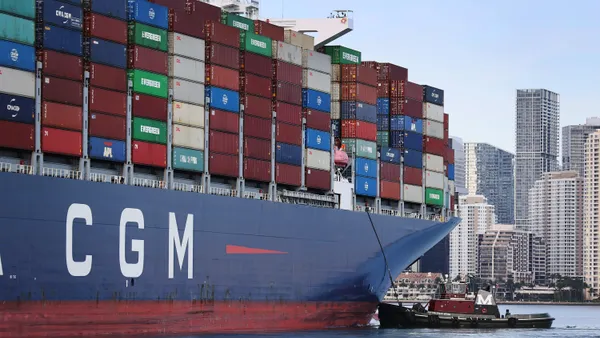Ocean carriers are shaking up the air cargo market even as the transport mode experiences a slowdown.
Pandemic-related congestion in the ocean market spurred a frenzy of shippers opting for air freight, with 2021 being one of the busiest years for the industry. To take advantage of the opportunities within the speedier transport mode, shipping giants including MSC, CMA CGM and A.P. Moller-Maersk, have either started or expanded air cargo operations.
Maersk plans to launch twice weekly flights connecting Chicago (RFD) and Hangzhou (HGH), and South Carolina (GSP) and Shenyang (SHE) using Amerijet-operated 767-300 freighters, according to an April 4 release.
Earlier this month, CMA CGM and Air France-KLM officially launched their air cargo partnership, per an April 3 release. The deal creates a broader distribution and freighter network to meet the need for more integrated and resilient supply chains.
However, those announcements come at a time of softness within the air cargo market, which could prove to be a hurdle for shipping companies looking to expand operations.
Shippers, who have endured years of sky high air freight rates, are opting to move their inventory back onto ships to cut back on freight costs, especially as port congestion clears. The previously strained air freight market has also normalized, with available air cargo capacity surpassing 2019 levels for the first time in February, and rates and global volumes on a steady decline.
Regardless, ocean carriers have continued to keep their eyes on the prize as they look to build out their end-to-end logistics network. Maersk, for instance, plans to ramp up flight frequencies between GSP-SHE and RFD-HGH to three weekly services starting in May, according to its release.
Expanded operations at companies like Maersk and CMA CGM come as industry players cut back on their own use of air freight with lower demand. FedEx, for instance, has been right-sizing its air operations in a bid to save costs, and recently announced plans to combine its Express and Ground business segments.
By adding air cargo operations, major ocean carriers are quickly transitioning to end-to-end supply chain providers and compete with traditional forwarders. Maersk said a new air freight gate near Chicago O’Hare International Airport (ORD) and RFD, for example, will help strengthen its supply chain integration opportunities.
While potentially disruptive to the traditional forwarder model, some stakeholders welcome the change especially as forwarders and airlines cut back on operations.
“Seeing ocean asset owners diversify their portfolio and invest [in] aircraft is a natural and welcome development,” Eric Martin-Neuville, executive vice president of freight forwarding at Geodis, told Supply Chain Dive in a December email. “The cargo freighter market has been somehow abandoned by a number of airlines over the years, and seeing newcomers invest in that area … is a welcome move.”
The extra air cargo capacity from ocean carriers will likely be needed when the market eventually rebounds, Martin-Neuville added.
"We continue to foresee a growth in air cargo demand over time and [the] additional capacity could prove useful as soon as the market bounces back,” Martin-Neuville said.














